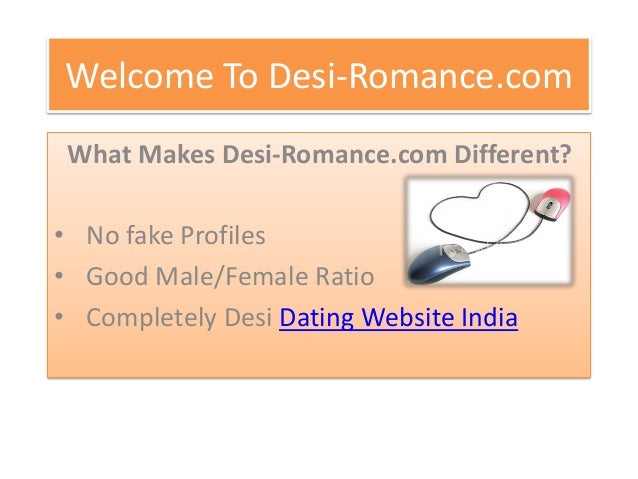Dating Websites Fake Profiles
Online dating has become one of the go-to methods to meet someone in today’s fast-paced society. But it isn’t without its difficulties! If you’re searching for love online, chances are you’ve come across a few fake dating profiles. Or do you find it tricky to spot them?
To help you tell a real person from a phony, we’ve put together a list of red flags to watch out for. That way you can say goodbye to time wasters and only focus on genuine connections, ones that have potential.
Fake Dating Profiles: Red Flags to Watch Out For
Profile Searcher is an easy-to-use and powerful tool that's going to reveal to you with pinpoint accuracy (and whithin seconds) if your partner has created online dating accounts. This unique tool will automatically search over 100 free dating sites and apps without you lifting a finger. Profile Searcher will scout these sites and find out if. Online dating site Seeking Arrangement deletes more than 600 fake accounts per day. It got together with background-screening company TC LogiQ and analyzed 60,000 banned profiles for common traits.
There’s a limited number of photos on their profile
While a limited number of photos on someone’s dating profile doesn’t automatically prove that you’re falling for a fraud, it’s definitely a red flag.
Everyone knows that their profile photos will be the first thing that catches someone’s attention, and choosing the perfect pictures can be tricky! That’s why fake dating profilesaim to use attractive photos to lure you in. But how do you know if that photo is really of them?
As a rule of thumb, profiles containing more photos are less likely to be a scam. But if you’re feeling unsure about the identity of who you’re speaking to, ask them to send you another photo. Maybe even request a photo of them doing something specific, such as holding up a piece of paper with their name on it, so you know they can’t have gotten this online. Or why not ask them to video chat?
Their profile isn’t linked to any social media accounts
Almost all online dating profiles are linked to a few social media accounts. So if someone is unwilling to connect on any other platform, it’s a little fishy. If you realize that there is no way for you to verify that the person who you’re talking to is real, then that’s a red flag that they might not be.
Sure, maybe they just want to keep their social media accounts private. But if you ask to connect on Instagram or Facebook and they continually refuse, then maybe they’re hiding something. If you’re really invested in this connection, be honest with them about how this is making you question them. And if they still refuse? We suggest pursuing another match, one that is excited to get to know you.
They won’t reveal anything about themselves
There’s nothing better than chatting with a potential match who seems genuinely interested in you. However, if you feel that this attention is only coming your way because your match doesn’t want to reveal anything about themselves, then you could be in a pickle.

If you realize that the person you’re talking to doesn’t seem to answer any questions about themselves, re-evaluate why that is. Often times these fake dating profiles will shift the conversation to manipulating their target. Don’t fall prey to someone giving you the attention you deserve.
Instead, direct the question right back at them and make sure you receive a response that you’re comfortable with. The last thing anyone wants is to tell someone their whole life story to find out that they were talking to a complete fake. Even worse? Some fake dating profiles don’t just try to scam you of your secrets, but of your money too.
Fake dating profiles love making excuses
Catfish are notorious for standing people up. Is your online crush constantly making excuses as to why they can’t meet in person? Or maybe they keep declining your video calls? If you’re looking to take this relationship into the real world, then this isn’t the response you should be looking for.
Sure, meeting in person for the first time can be nerve-wracking. But if you feel that their crazy excuses and rescheduling are less to do with first-date butterflies and more to do with their revealing true identity, you should probably take a step back.
While online dating may have simplified your search for love, it doesn’t mean it’s always going to be easy – dating never is! But the truth is that most people who date online are doing so with good intentions. So take note of our basic guidelines and most of all have fun!
Subscribe to our newsletter
By clicking Submit you agree to Zoosk’s terms of use and privacy policy.
More than half of online dating app and website users believe they’ve seen a fake profile with two in five having been approached by someone asking for money.
The Which? survey of 1,000 users of online dating services also found that one in seven admitted to sending money to someone who had asked for it.
Of those who sent money, men were twice as likely to have parted with cash when asked to than women.
Usage of dating website and apps is on the rise, which means that potential for fraud is also rising.
Online dating fraud has cost victims £27 million collectively over the last year, according to police figures.. Use our advice to spot fake online dating profiles and to protect yourself when using dating sites and apps.
Some dating services riskier than others
Of the dating sites used by those surveyed, users of Lovestruck.com were more likely to be asked for cash with more than a third reporting they’d been approached for money while using the site.
Almost three in ten users of Dating Direct and Elite Singles also reported that they’d been approached for money while on these sites.

Fake profiles rife on sites and apps
The Which? survey also found that around six in ten people had seen what they believed to be a fake profile.
Tinder was revealed to be the dating app where most people thought they had encountered a fake profile, closely followed by Plenty of Fish and Lovestruck.com.
But only three in ten said they reported fake profiles when they saw one.
Which? director of campaigns Alex Neill said: ‘It’s important for people to be vigilant when using dating sites or apps and ensure they are not revealing personal data that then could be used by scammers.
‘We’ve found most dating sites are quick to act on reports of fake profiles and scam attempts, so we encourage anyone who sees a fake profile or is approached by a suspected scammer to report it.’
‘I lost £4,000 to a dating scam’
During this investigation, Which? heard from Deborah*, who reported that she’d lost £4,000 to a dating scam last year in what she described as a ‘horrid situation’ that caused considerable distress.
Deborah met Steven while using Encounters Dating. He presented himself as a business consultant working in the oil industry who was often out of the country.
After a few weeks of regularly speaking through online messaging, email and a couple of telephone calls, they arranged to meet.
A matter of hours before the couple were due to meet face to face for the first time, Steven messaged Deborah to say he was out of the country and in desperate need of cash to fulfil a business contract.
The persistence of dating scammers
Deborah initially refused to send money, insisting that Steven must know someone else who could help. Steven pushed harder, becoming frantic and desperate saying she was the only one who could.
Despite her misgivings, Deborah succumbed to the pleas of a man with whom she believed she shared a mutual affection and transferred the funds to Steven.

Shortly after making the transfer, Deborah confided her concerns in a friend who warned her this could be a scam. Despite making several attempts to stop the payment, it went through.

Deborah’s bank said it had no reason to stop the payment – she had authorised it.
After reporting the scam to the dating site, the offending profile was immediately removed, but Deborah was still left £4,000 out of pocket.

Top tips on dating apps and websites
Users of online dating websites need to be alert to the potential for fraudulent activity. To guard yourself against being scammed, follow our tips:
Internet Dating Profiles
- Money Don’t send money to anyone you meet through an online dating website, no matter how convincing they may appear to be
- Unique email Always create and use a unique email address that is different to your personal or professional addresses when setting up a profile
- Personal details Don’t share personal details such as your mother’s maiden name or pet’s name which could be used to try to access financial information
- Real name Don’t include your last name, email or home address or any identifying information in your profile
*Please note that names and some minor details have been changed to preserve anonymity.
How To Tell Fake Profiles On Dating Sites
- Find out more about the latest scams
- Use our advice to get your money back after a scam
- Follow our step by step guide to report a scam